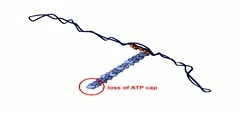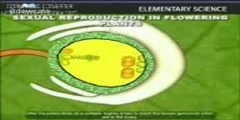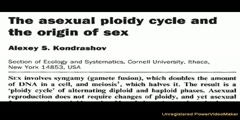Lec 10 - Genomic Conflict
"Lec 10 - Genomic Conflict" Principles of Evolution, Ecology and Behavior (EEB 122) Genomic conflict arises when the interests of various genomic elements, such as chromosomes and cytoplasmic organelles, are not aligned. These conflicts arise in two situations: either when one unit is contained within another, as a mitochondrion is contained within a cell, or when inheritance is asymmetrical. Genomic conflict can thus occur within a cell, within an organism, or between two organisms, such as a mother and developing fetus. There have been several steps taken to avoid these conflicts in sexual species, including the fairness of meiosis and the uniparental inheritance of cytoplasmic genomes. 00:00 - Chapter 1. Introduction 01:46 - Chapter 2. Hierarchal Selection and Conflicts 14:44 - Chapter 3. Segregation Distortion 20:26 - Chapter 4. Reproductive Conflicts 36:17 - Chapter 5. Reproductive Conflict and Mental Disorders 42:57 - Chapter 6. Evolutionary Principles of Conflict Resolution Complete course materials are available at the Open Yale Courses website: http://open.yale.edu/courses This course was recorded in Spring 2009.
Video is embedded from external source so embedding is not available.
Video is embedded from external source so download is not available.
Channels: Ecology
Tags: genomic conflict petite yeast hierarchal selection mitochondria sex ratio sexual reproduction reproductive conflicts relatedness segregation segregation distortion autism mental disorders imprinting
Uploaded by: yaleevoeco ( Send Message ) on 02-09-2012.
Duration: 47m 51s
Here is the next lecture for this course
Lec 13 - Sexual Selection
46:07 | 6035 viewsParM and Plasmid Segregation
00:27 | 14985 viewsProcess of plant sexual reproduction
02:57 | 28448 viewsAssay of genomic instability
01:07 | 12303 viewsSexual reproduction in flowering plants
01:15 | 21693 viewsOrigin And Revolution of Sexual reproduction
08:06 | 16409 viewsLec 21 - Biology 1B - Sexual Selection
49:05 | 3567 viewsLec 9 - Mitosis, Meiosis and Sexual Repro ...
18:23 | 6771 viewsLec 19 - Biology 1B - Lecture 20: Recombi ...
49:32 | 5323 viewsLec 20 - Biology 1B - Lecture 21: Sexual ...
49:58 | 4389 viewsSexual reproduction and asexual cloning
09:07 | 32701 viewsLec 15 - Human Sexual Behavior I
01:41:43 | 6954 viewsConflict of the The Holy Quran and Modern ...
09:39 | 8186 viewsLec 8 - Nash equilibrium: location, segre ...
01:13:50 | 4225 viewsLec 21- Sexual Selection
47:57 | 3255 viewsNo content is added to this lecture.
This video is a part of a lecture series from of Yale
Lecture list for this course
Lec 1 - The Nature of Evolution: Selection, Inheritance, and History
Lec 2 - Basic Transmission Genetics
Lec 3 - Adaptive Evolution: Natural Selection
Lec 4 - Neutral Evolution: Genetic Drift
Lec 5 - How Selection Changes the Genetic Composition of Population
Lec 6 - The Origin and Maintenance of Genetic Variation
Lec 7 - The Importance of Development in Evolution
Lec 8 - The Expression of Variation: Reaction Norms
Lec 11 - Life History Evolution
Lec 14 - Species and Speciation
Lec 15 - Phylogeny and Systematics
Lec 16 - Comparative Methods: Trees, Maps, and Traits
Lec 17 - Key Events in Evolution
Lec 18 - Major Events in the Geological Theatre
Lec 19 - The Fossil Record and Life's History
Lec 21 - Evolutionary Medicine
Lec 22 - The Impact of Evolutionary Thought on the Social Sciences
Lec 24 - Climate and the Distribution of Life on Earth
Lec 25 - Interactions with the Physical Environment
Lec 26 - Population Growth: Density Effects
Lec 27 - Interspecific Competition
Lec 28 - Ecological Communities
Lec 29 - Island Biogeography and Invasive Species
Lec 30 - Energy and Matter in Ecosystems
Lec 31 - Why So Many Species? The Factors Affecting Biodiversity
Lec 32 - Economic Decisions for the Foraging Individual
Lec 33 - Evolutionary Game Theory: Fighting and Contests
Lec 34 - Mating Systems and Parental Care
















